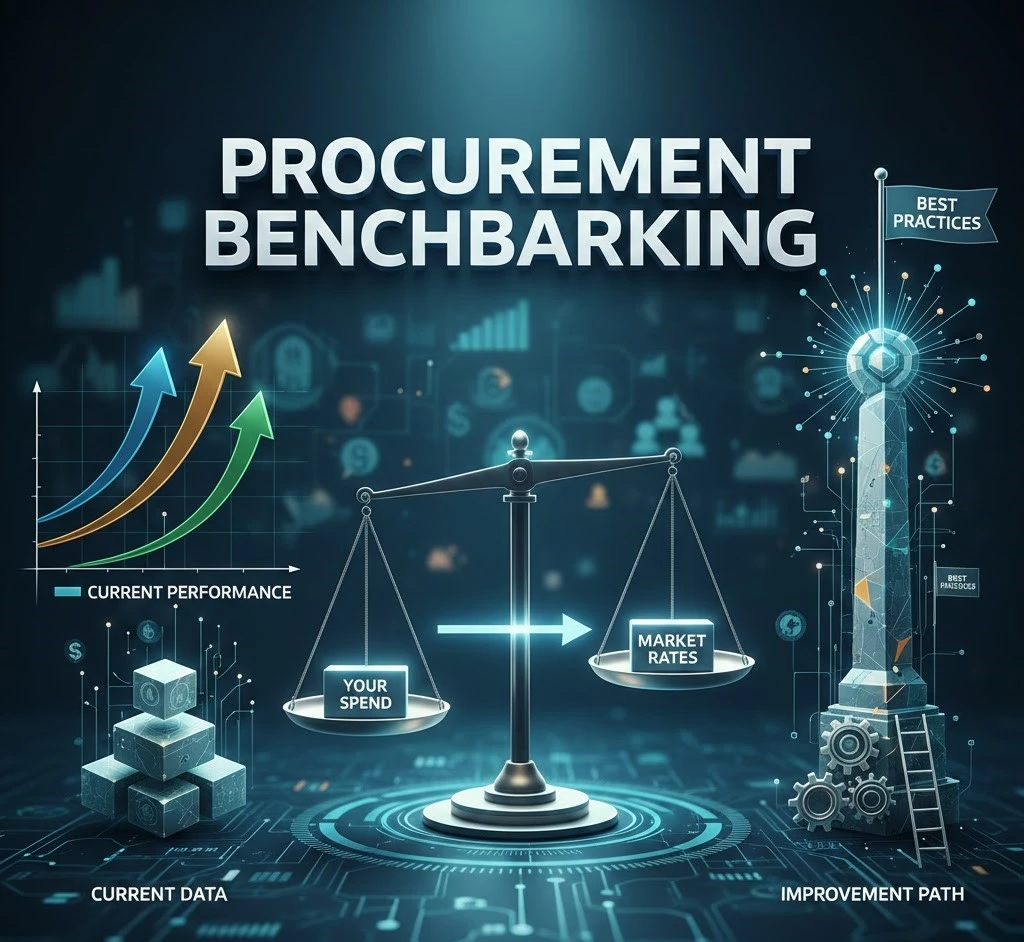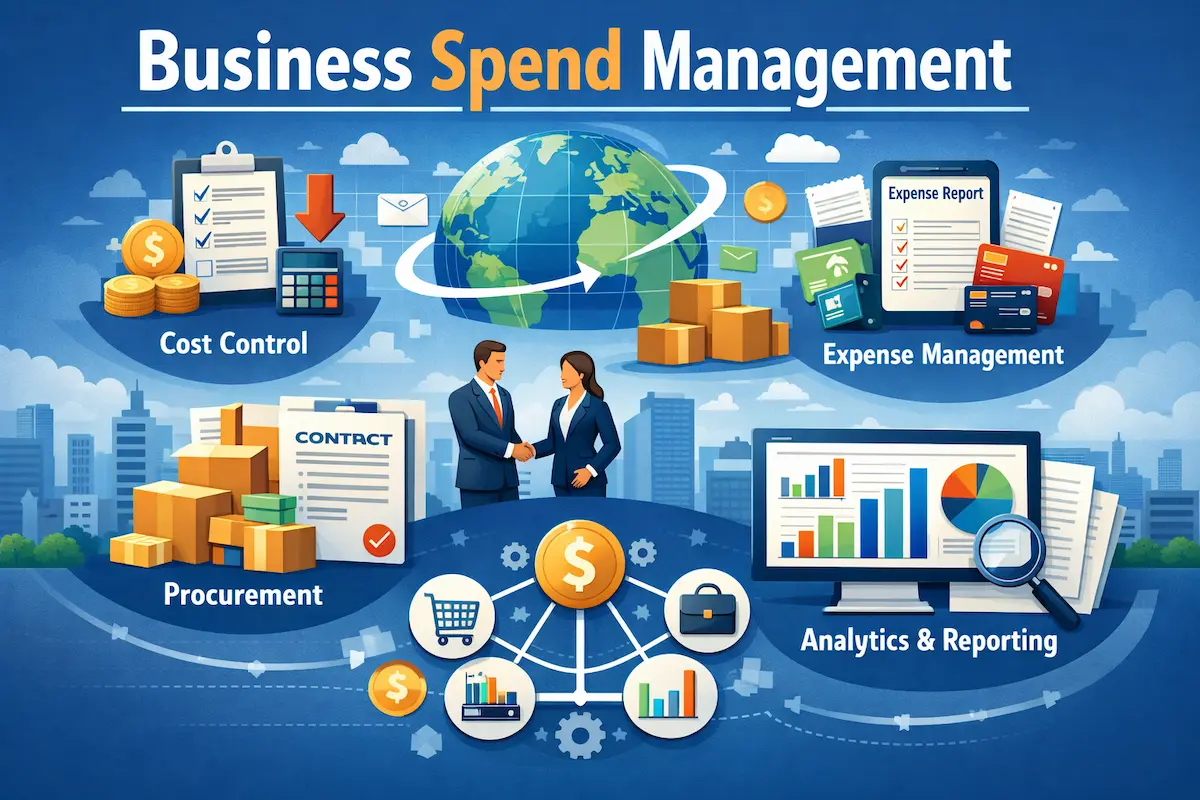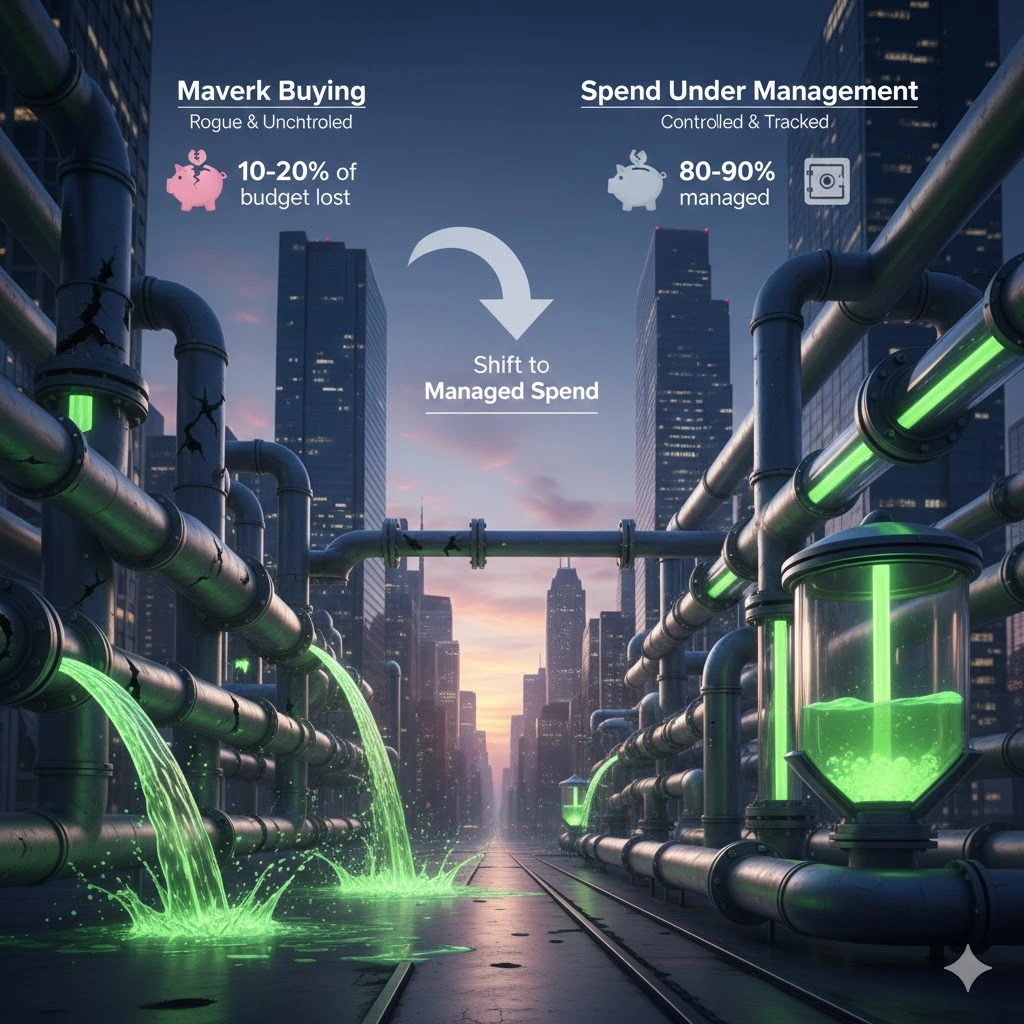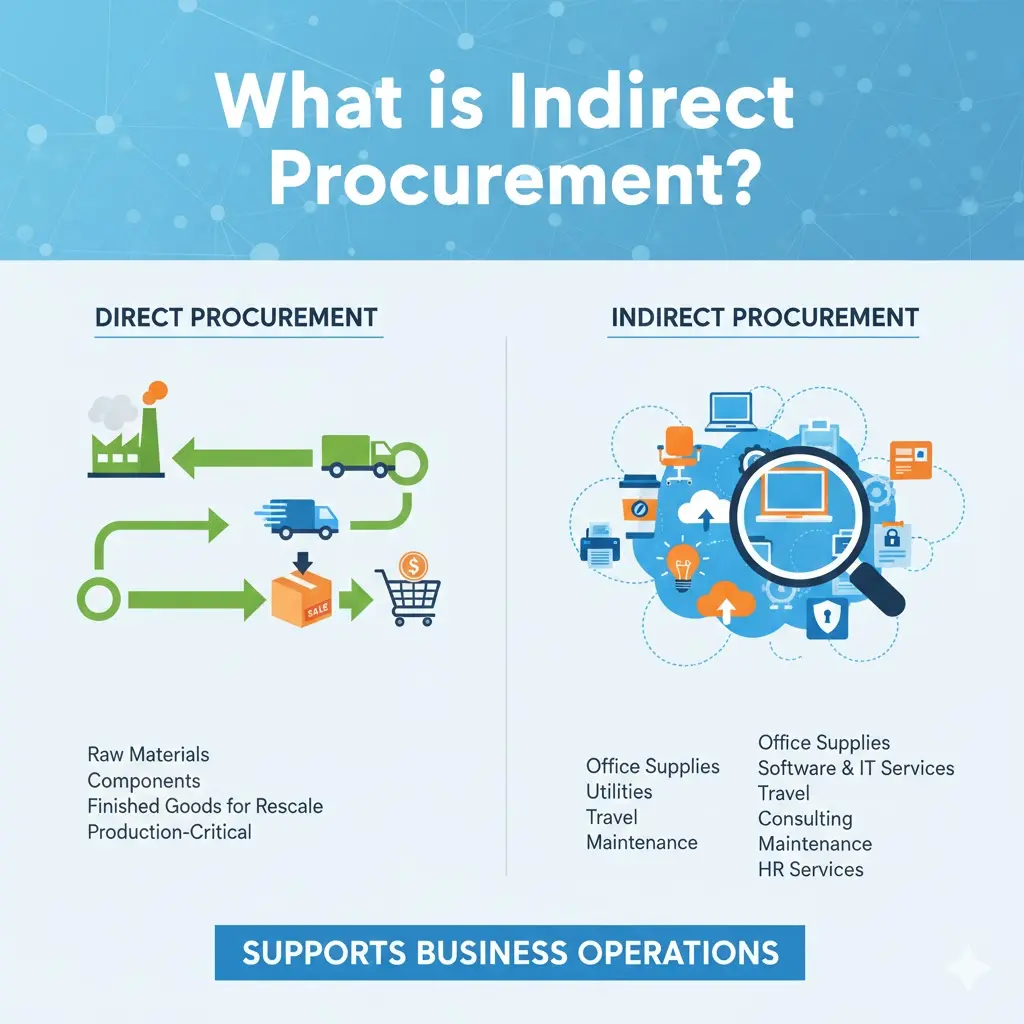As businesses face more competitive factors, they rapidly change their procurement strategies. Procurement is more than just an approach to managing the supply chain. Instead, it has become a crucial part of any business. As customers have become more aware of their rights and environmental sustainability, companies strive to uplift their strategies, such as customer support, supply management, relationships with suppliers, and ecological sustainability. Procurement trends have changed to transform the future of various businesses. Now, companies have realized that procurement is not only related to cost savings; it is essential to make intelligent choices that stay ahead of the competitors and make it possible to make your company the first choice of customers.
In this blog, we will discuss the various procurement trends 2025,2026. By embracing these trends, you can enhance your business operations and make positive changes to your company, positively contributing to society and your business growth.

Top 10 Procurement Trends
Following are the top 10 current trends in procurement that are changing the procurement for 2026.
Cost Savings And Managing Working Capital
Cost savings and inventory management have always remained on the top priority list of business owners. But, business leaders are now striving for new approaches to meet these essential factors. Real-time data access with the help of AI tools and new tools can help compare it with historical data and inventory stock, which allows businesses to manage their inventory on time. Further, companies are working on cash flow management. For this, they are establishing solid relationships with the suppliers. They can negotiate payment terms with them using real-time data through cloud computing methods and tools, which helps them save costs, manage the supply chain, and advance the availability of materials even before the stock is out.
Optimizing Supplier Relationships
Maintaining supplier relationships with suppliers is new in the industry. However, strategies and approaches to endure these relations are the latest trends businesses overlook. For example, companies are now minimizing their supply base. This means that they are focusing on fewer suppliers than on contacting many. Working with the minimum suppliers helps to understand the business goals and regulatory compliances more deeply. Further, collaborative relationships help to produce quality products from refined raw materials, and both parties believe in mutual success, working on shared perspectives and working hard to achieve their goals.

In short, Collaborative supplier relationships lead to better product quality, innovation, and cost efficiencies. Businesses that invest in strong partnerships with suppliers will benefit from enhanced performance and scalability, creating a foundation for sustained business elevation.
Digital Innovation
Digital procurement trends including various platforms are emerging trend for procurement in 2025 and will overlap in 2026, with many positive impacts on businesses. Digital innovation has managed cost efficiency by comparing quotes from one supplier with many others and getting the most affordable prices. One example is the online marketplace, which connects businesses with many suppliers at a time. Further, you can easily access the supplier’s profile, check the reviews from previous customers, and make informed decisions.
The second benefit of digital integration in the procurement industry is the seamless communication between suppliers, business leaders, and stakeholders. You can communicate on shared chat platforms and make timely decisions to finalize a supplier.
In short, the digital ecosystem in the procurement industry has managed finances, cost efficiency, logistics, and transparent communication, as well as optimized supplier chain management by implementing digital platforms in procurement. Businesses can avail themselves of long-term benefits with scalability, which is necessary to stay ahead of the market and their competitors.
AI Automation
AI integration has automated many processes in procurement, such as finance, secure transactions, handling repetitive tasks, and reducing human errors. Besides, AI has given access to real-world data and helped companies choose more performing and strategic suppliers. Further, AI also helps the business and procurement industry in risk assessment and invoice processing. Ai-based forecasting allows inventory management through timely predictions, prevents material stock, and keeps the workflow in the process. Further, AI-integrated chatbots and chatting platforms enhance customer collaboration and improve the company’s customer service excellence. It has also helped to detect fraud and scams and improve security resilience, which are the core components that benefit businesses commercially. In short, AI is good at managing inventory, communication, security, customer support, finance, and many other departments.
Sustainable Sourcing
Over the years, customers’ awareness about environmental pollution and sustainable resources has peaked. Now, people prefer to purchase from businesses fulfilling the environmental regulatory compliances. So, sustainability will remain at the forefront of the procurement industry, and businesses that want to make their place in the limelight should follow these sustainability regulatory codes. Nowadays, many organizations and companies know the importance of reducing carbon footprints and meeting the expectations of stakeholders and customers by availing raw materials from suppliers who follow environmental practices. Sourcing materials from eco-friendly suppliers, following circular economy principles, and reducing waste material companies can get their place in the top-favorite organizations in 2026.
In short, sustainability is not just a word now; it’s an emerging and dominating trend of 2026 for businesses and the procurement industry. It will help companies maintain their brand image and gain long-term resilience and customer support to enhance their return on investment.
Blockchain Technology
Blockchain technology is a good source for secured transactions and tracing the material’s originality and supply from the source to the delivery point. It is helpful to know the authenticity and creativity of the raw materials. Through blockchain technology, procurement teams can track the supplier’s practices and make informed decisions. As it can trace the materials from production to delivery, it helps detect any issue, make informed decisions, and supply only quality products to the customers, which ultimately leads to enduring relations with the potential customers in the market and enhances your return on investment. Blockchain technology helps organizations adhere to suppliers’ regulatory compliance and establishes strong customer ties. Such organizations can distinguish themselves from the customers.

Risk Management Through Recent Approaches
Risk management has become the primary concern of organizations and businesses, especially after the COVID-19 pandemic. Delays in the supply chain due to any geo, political, or pandemic affect the supply chain and business operations badly. So, companies focus on dealing with risk management through new trends and approaches such as AI and machine learning by comparing recent stock with historical data. The companies that will adopt these approaches in coming years to tackle risk management will lead the industry and could maintain their business operations even in diverse geo-environmental situations.
Mobile Integrated Procurement Apps
Mobile integrated apps for procurement teams efficiently enhance collaboration and communication with stakeholders, suppliers, and customers. These apps allow responsible persons to improve their responsive efficiency.
Using these apps will help businesses enhance their productivity, workflow, and seamless communication, resolving many issues that are being delayed due to miscommunication or late responses. These apps will allow your team to respond to the concerned person after office hours.
Outsourcing Procurement Services
Outsourcing procurement services to a third party with specialized professionals to deal with supply chain management, relations with suppliers, raw material check and balance, finance management, and all other procurement sources is also beneficial. This trend attracts medium to large-scale organizations due to its higher success rate. The procurement specialized organizations have specialized tools, software, AI technologies, and professional procurement managers to deal with all these issues. Further, this cost-effective process gives business leaders time to focus on their primary objectives.
Sourcing from Emerging Markets
This trend is also becoming popular due to cost efficiency. Now, organizations focus on sourcing images from emerging markets such as Asia and Africa. Many companies are importing raw materials from these markets. Further, labor from these markets is also available to work. However, meeting challenges such as global shipment and regulatory compliances are complex tasks. If companies efficiently fulfill these requirements and find the resources from these emerging markets, it will boost their business and create employment for people in developing countries.

Conclusion
The procurement industry is adopting many new trends, such as AI integration, digital platforms, strong supplier relations, availing sources from sustainable suppliers, integration of blockchain technology, etc. These trends have brought many benefits to various companies. Organizations implementing these strategies within their business operations will make their place more prominent than their competitors.
Frequently Asked Questions
What is the future of the procurement industry in 2026?
The future of the procurement industry is bright with various strategies. Integrating AI, digital setup, and machine learning procurement will help businesses manage their operations and maintain workflow.
What are the new trends in procurement which will reshape the procurement industry?
AI integration, cloud computing, predictive analysis, and blockchain technology are the newest trends in the procurement industry in 2026.
What are the main challenges for the procurement industry in the coming years?
Supply chain management during stressed environmental and geopolitical conditions and securing enduring relations with suppliers are the main challenges for the procurement industry.
Read More: Pallet Procurement Marketplaces







